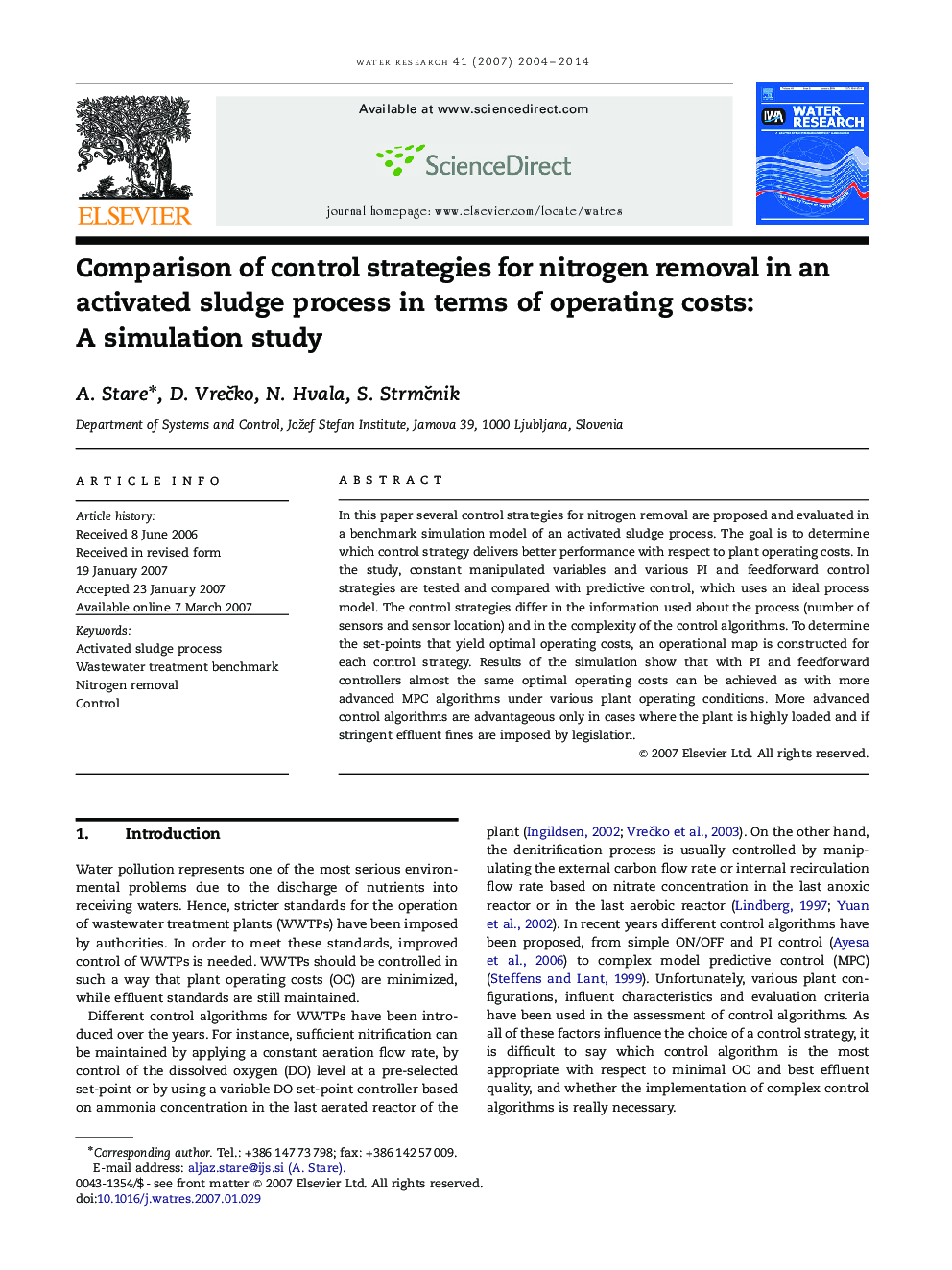| Article ID | Journal | Published Year | Pages | File Type |
|---|---|---|---|---|
| 4486422 | Water Research | 2014 | 11 Pages |
In this paper several control strategies for nitrogen removal are proposed and evaluated in a benchmark simulation model of an activated sludge process. The goal is to determine which control strategy delivers better performance with respect to plant operating costs. In the study, constant manipulated variables and various PI and feedforward control strategies are tested and compared with predictive control, which uses an ideal process model. The control strategies differ in the information used about the process (number of sensors and sensor location) and in the complexity of the control algorithms. To determine the set-points that yield optimal operating costs, an operational map is constructed for each control strategy. Results of the simulation show that with PI and feedforward controllers almost the same optimal operating costs can be achieved as with more advanced MPC algorithms under various plant operating conditions. More advanced control algorithms are advantageous only in cases where the plant is highly loaded and if stringent effluent fines are imposed by legislation.
